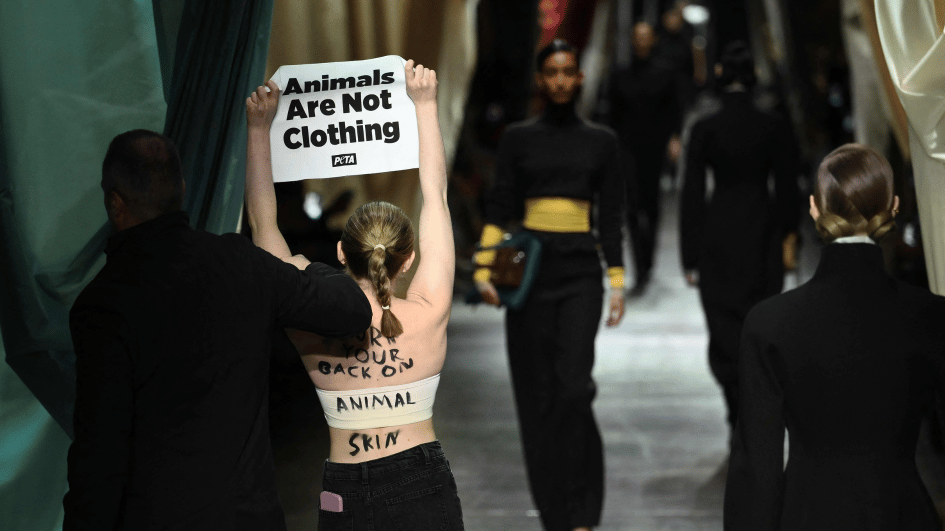
Animal activists have fashion brands squarely in their sights this Milan Fashion Week, hoping to pressure Italian brands Max Mara and Fendi to give up fur in future collections.
An activist from PETA (People for the Ethical Treatment of Animals) stormed the Fendi runway on Wednesday brandishing a sign saying, "Animals are NOT clothing.”
And a coalition of pro-animal groups stepped up their campaign on Feb. 22 against Max Mara.
Over 1,500 international fashion brands, including some of the most prestigious, have renounced fur in recent years, due to concerns about animal cruelty, changing trends and new synthetic alternatives.
On Feb. 22, a hot-air balloon with the message "Max Mara Go Fur-Free" floated above the company's headquarters in Emilia Romagna for the second day running.
The stunt was backed by the Fur Free Alliance - a coalition of over 50 global animal protection associations, including the Humane Society International and Italy's LAV (Anti-Vivisection League) - which has been targeting Max Mara since earlier this month.
The campaign, involving protests, social media posts, telephone calls and emails, corresponds to the season of fashion weeks in New York, London, Milan and Paris running until March 5.
Outside the Max Mara show, Anna Kirichenko, 32, sported a black ski hat prominently decorated with the company's logo, combined with an oversized black faux fur jacket.
"There are so many alternatives, so many young designers who can give us cheaper and better alternatives [to real fur]," Kirichenko said.
"I want to be an example... I don't like the smell of death.”
The fur industry markets its products as environmentally friendly renewable resources -- claims that anti-fur activists refute, citing higher carbon footprints.
Within the European Union, there is no ban on sales of fur, nor any specific animal welfare legislation covering these animals.
California, Israel and certain U.S. cities have banned fur sales.
As of December, 17 of the EU's 27 member countries had adopted full or partial bans on fur farming, with others in the works.
There are currently more than 1,000 fur farms in the EU - most of them in Finland, Greece and Poland -- which amounts to about 7.7 million animals.
Fur Free Europe collected 1.7 million signatures last year to petition the European Commission to ban fur farming.
In response, the EU's executive asked its food safety agency to conduct an independent review on the protection of fur production animals by March 2025.
By March 2026, the Commission will rule on a potential ban on fur farming and the sale of farmed animal fur products within the EU.
Alternatively, it could adopt "appropriate standards" for better animal welfare practices.